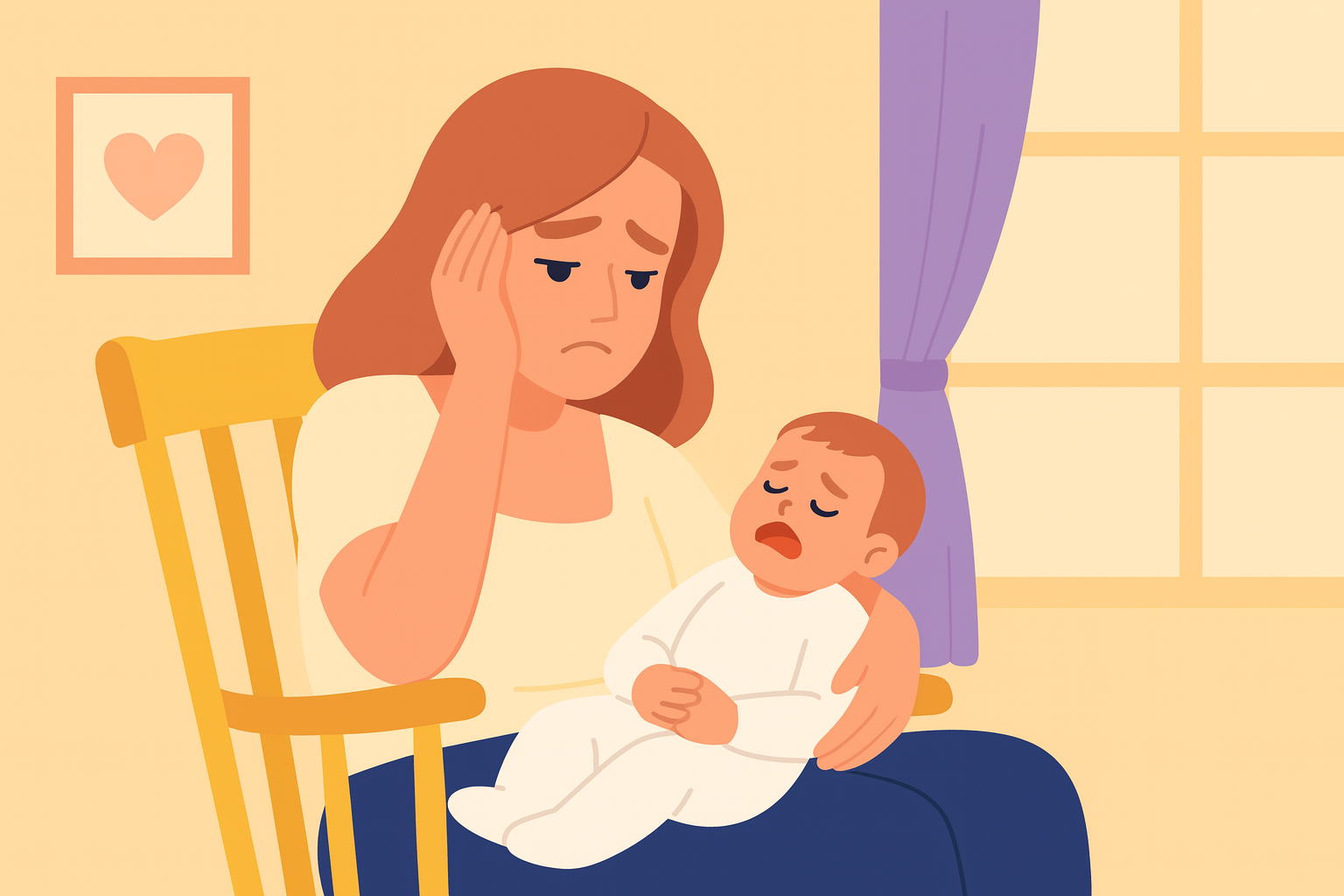When after nine months the long-awaited baby is finally born, everyone expects happiness and joy. Family and friends congratulate the new parents and ask: “Isn’t it wonderful, such happiness with a newborn?” The mother and father smile politely, but deep inside they may feel something is wrong. Why does everyone say a baby brings only joy, while we don’t feel happy at all?
I deliberately include both mothers and fathers, because postpartum depression can affect men too. Fathers also experience life-changing adjustments, and for them, pregnancy is not the same intense, physical process as it is for mothers, who live through every change in their own bodies.
The birth of a child is a turning point – what psychologists call a normative crisis. It is not the only one in life: marriage, moving house, starting a new job, or the birth of another sibling are all similar. Life is full of changes, and these require us to adapt. A crisis does not necessarily mean something negative – it simply means change, and change is not always easy, even when it is something positive, like the birth of a baby.
With the arrival of a baby, roles change: a couple becomes parents, an only child becomes a sibling, parents become grandparents. Unfortunately, many of the rituals and support systems that used to surround childbirth have disappeared. Mothers often go straight from work to the delivery room, and afterwards lack the supportive, protective environment that would help them adjust. This absence often increases the risk of mood disorders.
Types of Postpartum Mood Disorders
- Baby blues: A very common condition, affecting 70–80% of women. It typically appears within the first few days or week after birth. The mother may cry at anything, whether she feels sad or happy. This mood swing is completely normal and usually fades as hormones settle and as the new situation becomes more familiar.
- Postpartum depression: Affects 10–25% of mothers and can develop at any time during the first year. Symptoms include lack of energy, sleep and eating problems, anxiety, loss of joy, and physical complaints. Mothers may appear emotionally distant from their babies or overly protective, often relying on rigid routines and strict schedules.
- Postpartum post-traumatic stress disorder (PTSD): Can occur after a birth experienced as traumatic. Symptoms include anxiety, flashbacks of the trauma, and depression.
- Postpartum psychosis: Thankfully very rare, but a serious condition in which the mother loses touch with reality.
What Can Be Done?
Recognize the risk factors
Risk factors can include: traumatic birth, unwanted pregnancy, first-time motherhood, very young or older maternal age, lack of support, prior depression, history of abuse, poor relationship with one’s own mother, premature birth, separation of mother and baby after delivery, low self-esteem, or poor preparation. But note: mood disorders can also appear without any of these factors.
Recognize the symptoms
Signs of depression may already appear during pregnancy. Later, ongoing fatigue, changes in appetite or weight, anxiety, sadness, or hopelessness may indicate postpartum depression. Take such signals seriously – ask questions, and seek professional help if needed.
Why Recognition Matters
Postpartum mood disorders are far more common than we often think. Almost every mother reports having experienced some negative feelings after childbirth. Recognizing and treating these conditions is essential – for the wellbeing of the mother, the baby, and the whole family.
Many mothers do not dare to admit they feel unhappy, exhausted, or disappointed. Nobody warned them how much sacrifice and effort caring for a baby requires. Social media adds to the difficulty: family photos online often show only perfect happiness, creating the illusion that parenting is effortless. Comparing themselves, mothers may feel even more isolated and inadequate.
The truth is that most mothers experience some form of postpartum mood disturbance. For some, it passes quickly. For others, it is a heavy burden. If mothers were better informed before giving birth about what to expect, and if they felt safe to talk openly about their feelings, many families would suffer far less.
Dare to ask. Dare to talk. Dare to seek help.
No one should feel alone in the vulnerable period after the birth of a child.



